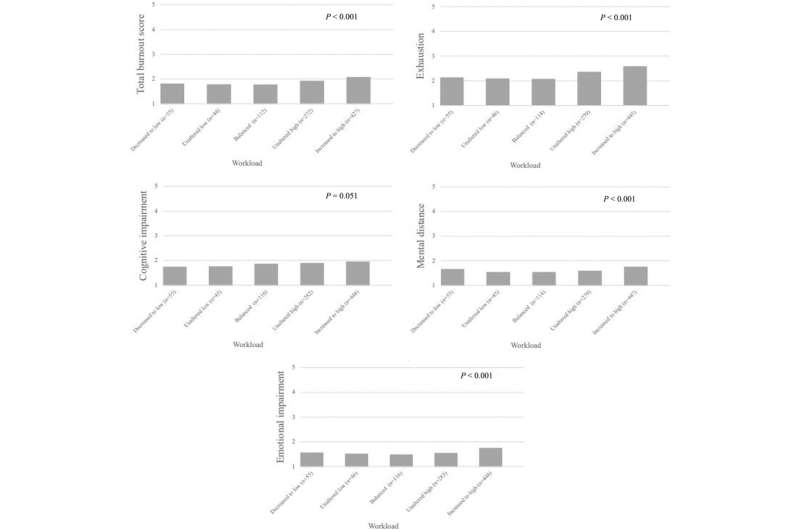This article has been reviewed according to Science X's editorial process and policies. Editors have highlighted the following attributes while ensuring the content's credibility:
fact-checked
trusted source
proofread
Swedish study finds increased exhaustion in maternal and neonatal care during pandemic

The pandemic has resulted in major challenges to the health care system in Sweden. Employees in maternal and neonatal care have been severely affected by changed work routines and staff shortages.
The COPE Staff cohort study on working conditions for maternal and neonatal health care workers examines self-rated job satisfaction, work-life conflicts, stress, and burnout among maternal and neonatal care staff in Sweden. 957 responses were collected through digital questionnaires between January and April 2021.
The results will be presented in several upcoming academic publications. The first scientific article from the study material is published in The International Journal of Gynecology & Obstetrics.
Loud warning bells
The results show that, during the pandemic, roughly 80% of employees experienced a heavy workload: About 50% of the respondents stated that it had increased. Of the study population, 18% exceeded the clinical threshold for exhaustion, an early sign of burnout. In the studied group, 4 percentage points were so high on the rating scales that they exceeded the clinical cutoff for burnout.
"The percentage of workers exceeding the clinical threshold for burnout is not alarming. However, there is a need for action. There are loud warning bells indicating that health care workers are at risk of suffering from burnout if their workload isn't regulated," says Karolina Lindén, midwife and research fellow (docent) at Sahlgrenska Academy, University of Gothenburg.
"The staff who work in maternal and neonatal care were already under a heavy workload before the pandemic, and those whose workload became even heavier during it were especially vulnerable. If this persists, we can expect effects in the form of greater mental distancing, cognitive impairment and emotional impairment in the future, leading to burnout," says Magnus Åkerström, research fellow (docent) at Sahlgrenska Academy, University of Gothenburg and senior developer at the Institute of Stress Medicine, Region Västra Götaland.
Women and young people more affected
Women reported significantly elevated stress and exhaustion levels, as did young study participants. Young people's job satisfaction was also relatively low compared to more experienced staff.
The COPE Staff study was designed to explore employees' working environment and health during the pandemic, and to continue monitoring them for up to five years. The aim is to identify possible preventive measures at an organizational level.
More information: Magnus Akerstrom et al, The COPE Staff study: Study description and initial report regarding job satisfaction, work‐life conflicts, stress, and burnout among Swedish maternal and neonatal healthcare workers during the COVID ‐19 pandemic, International Journal of Gynecology & Obstetrics (2023). DOI: 10.1002/ijgo.14772




















